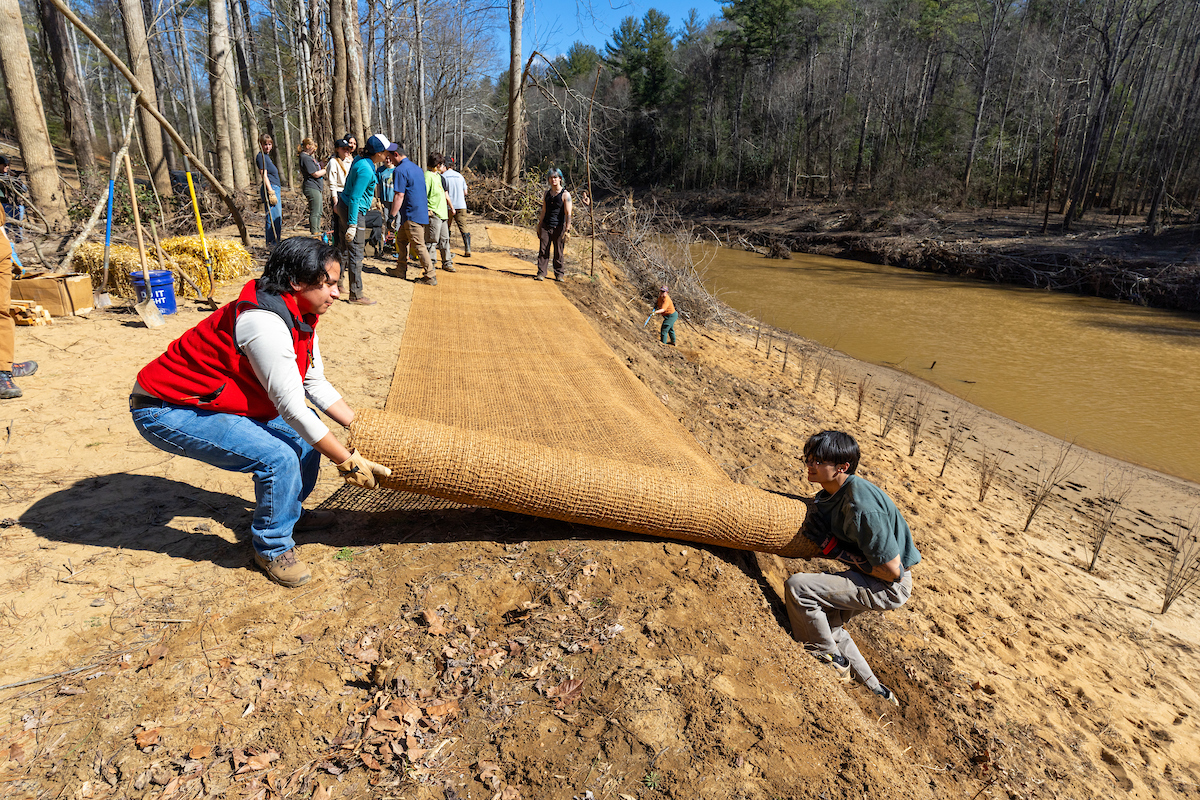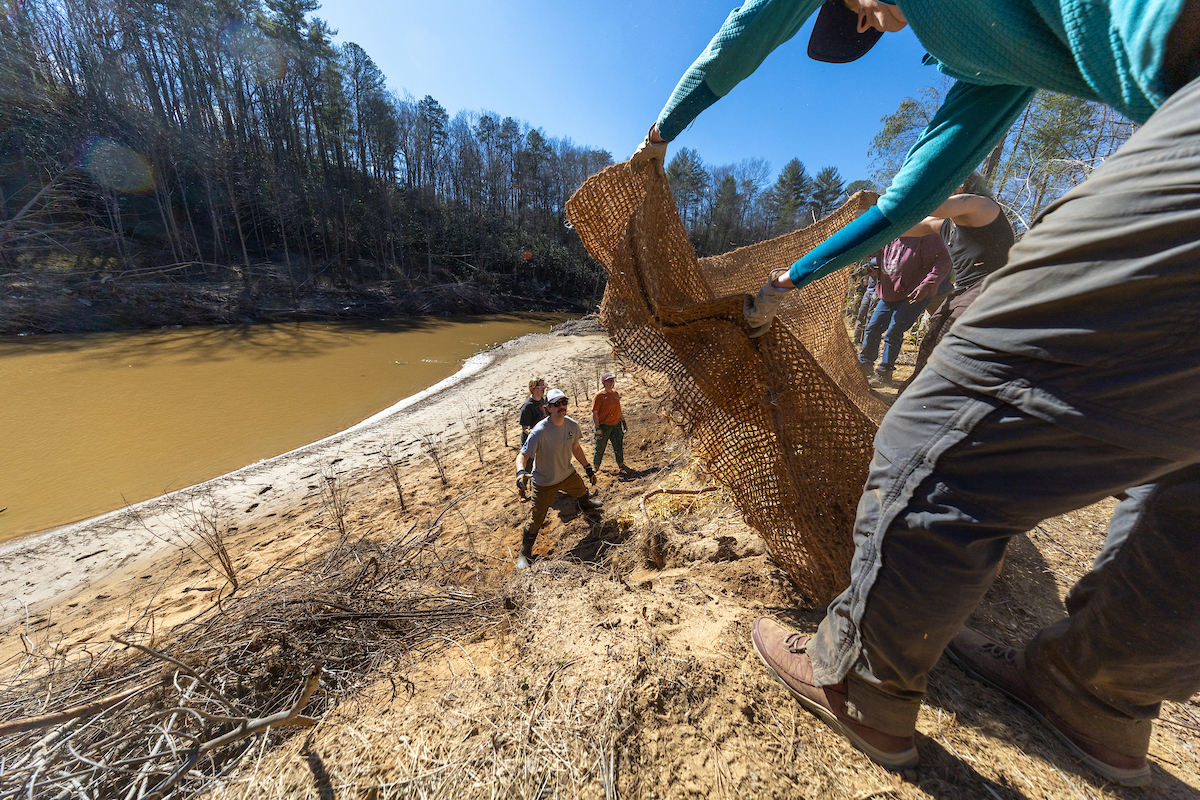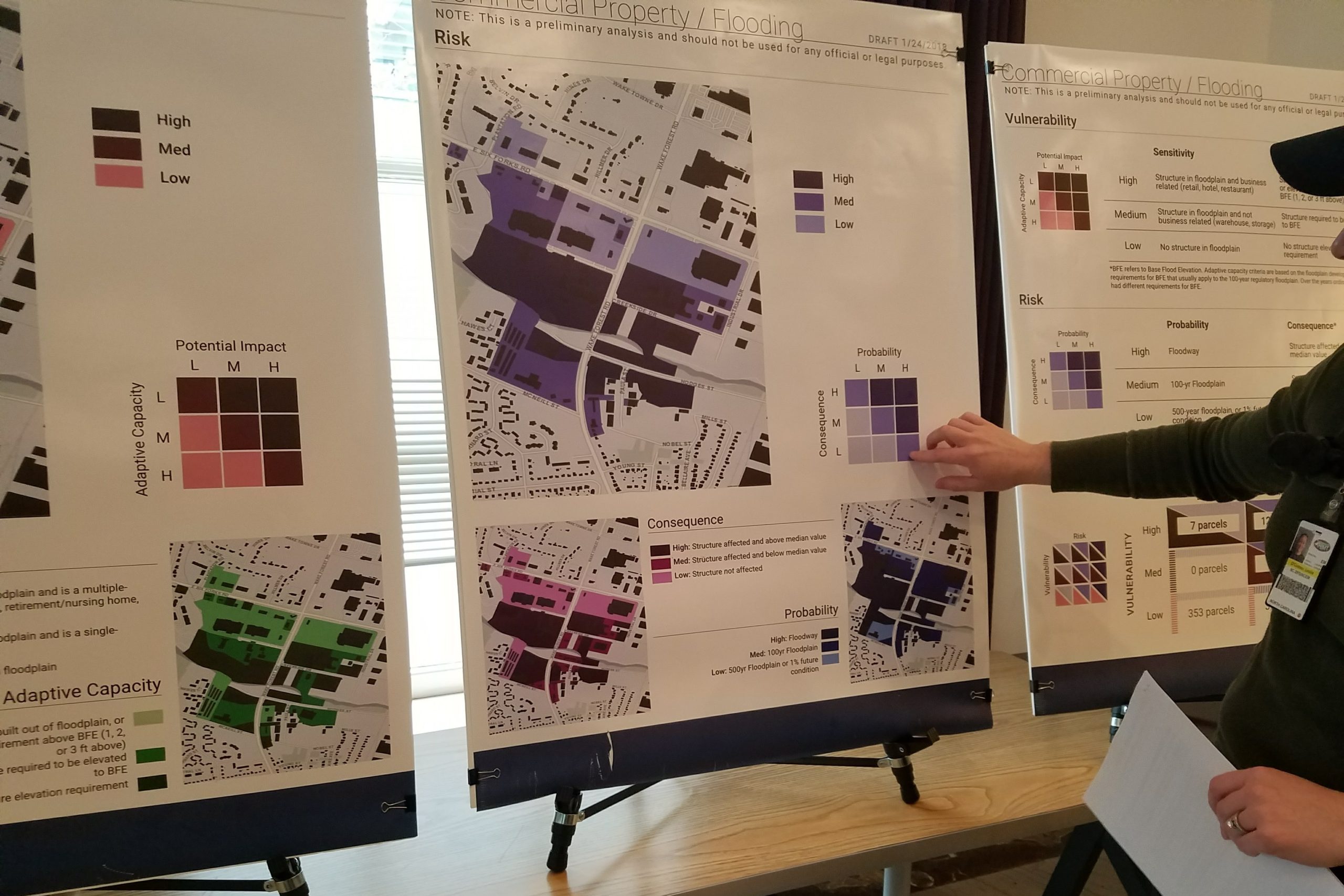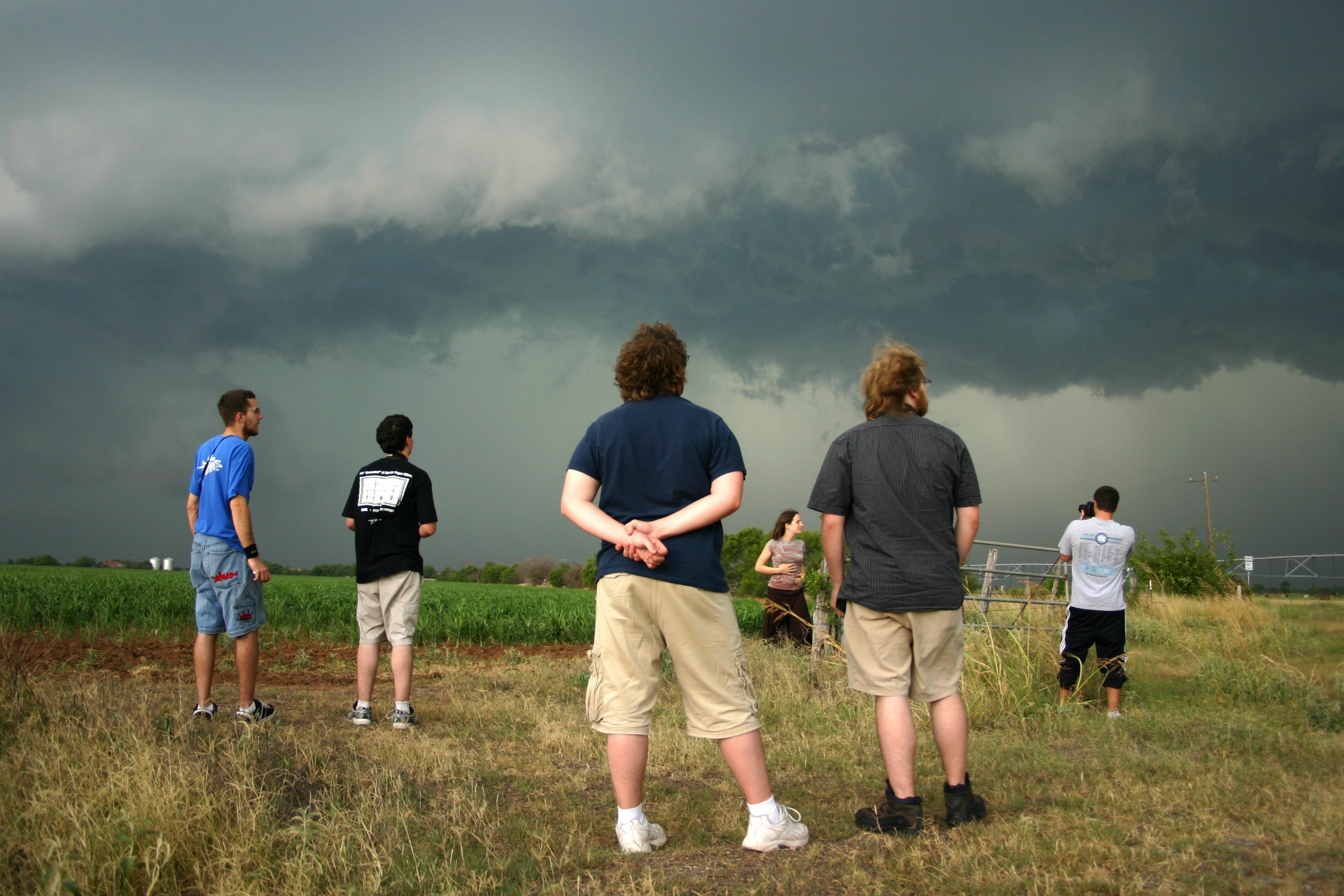Learn how to strengthen our communities’ resilience to climate change. Gain the technical skills and interdisciplinary knowledge needed to solve problems, communicate science effectively, and build resilience. Earn a Master’s of Science in Environmental Resilience in one year at UNC Asheville.
Why Study Environmental Resilience at UNC Asheville?

Small, In-Person Classes
Our small, in-person classes emphasize critical and open inquiry and discussion, hands-on research, collaborative learning, and community. You will complete your degree as part of a small cohort of students, beginning together in the fall and graduating in the summer.

Community-Engaged Research
During your spring semester, you’ll gain hands-on experience through an internship with an organization working on climate resilience. Community partners include the Asheville offices of the National Oceanic and Atmospheric Administration (NOAA), UNC Asheville’s own National Environmental Modeling and Analysis Center (NEMAC), and additional community-based and governmental organizations in Asheville and beyond. Through the work you embark on with your community partner, you’ll develop plans for your capstone applied research project, which you will undertake in your final summer term. Gain the skills and knowledge necessary to prepare you for a dynamic career in climate resilience and sustainability.

Local to Global
Action to build resilience to climate change transcends borders. In our program you will study how communities and governments across the world are building resilience.
Curriculum
Students will take a total of 30 credit hours, across seven 3-credit hour content courses, one 3-credit hour internship-based course, and one 6-credit hour applied research practicum course.
Required Courses
- MSER 501: Climate Science
- MSER 502: Climate Resilience Foundations: Theory and Practice
- MSER 503: Introduction to GIS
- MSER 510: Advanced GIS
- MSER 511: Practicum I: Internship and Research Proposal
- MSER 599: Practicum II: Applied Research Project
Elective Courses
- (students will take 3 elective courses from this list, which will be offered on a rotating basis)
- MSER 521: Visualizing and Communicating Data
- MSER 522: Economics and Finance of Climate Resilience
- MSER 523: Social and Ethical Dimensions of Resilience Planning
- MSER 524: Regression and Predictive Modeling
- MSER 525: Monitoring and Evaluation
Sample Schedule
Fall
- MSER 501: Climate Science
- MSER 502: Climate Resilience Foundations: Theory and Practice
- MSER 503: Introduction to GIS
- MSER 521: Visualizing and Communicating Data
Spring
- MSER 510: Advanced GIS
- MSER 511: Practicum I: Internship and Research Proposal
- MSER 524: Regression and Predictive Modeling
- MSER 522: Economics and Finance of Climate Resilience
Summer
- MSER 599: Practicum II: Applied Research Project
How to Apply
UNC Asheville invites applications to the Master of Science in Environmental Resilience (MSER) Program from individuals committed to an intensive, interdisciplinary study within a liberal arts setting. Admission is open to all who hold a bachelor’s degree (or equivalent) in any field and demonstrate a clear interest in advanced studies in climate resilience.
Applicants should have completed the following three undergraduate prerequisite courses:
- An introductory natural science course in a relevant field (i.e., Atmospheric Science, Chemistry, Environmental Science/Studies, or Physics)
- An introductory course in Economics
- An introductory course in Statistics
Applicants missing one of the prerequisites may complete it during the fall semester.
Prospective graduate students must have completed a Bachelor’s degree from an accredited college or university. Overall undergraduate GPA must be 3.0 or higher.
Application Materials
- Official transcripts from all institutions attended (including credit and withdrawals), sent directly to UNC Asheville (admissions@unca.edu)
- Two letters of recommendation, sent from your recommenders to admissions@unca.edu (please ask that they include “MSER: Recommendation for YOUR NAME” in the subject line)
- A resume, sent to admissions@unca.edu (please include “MSER: Resume for YOUR NAME” in the subject line)
- The MSER application form, which includes:
- A personal statement: A 500-1000 word essay detailing your academic background, professional goals, and how the MSER program aligns with your personal and career objectives. The essay should also highlight unique skills, personal qualities, or relevant experiences you bring to the program.
- A non-refundable application fee of $75
- Optional: Apply for North Carolina Residency through the NC Residency Determination Service (RDS), at https://www.ncresidency.org/ and submit your RCN as part of your application
- Students applying from other countries or whose native language is not English must submit English proficiency exam scores from one of the following to admissions@unca.edu:
- Test of English as a Foreign Language (TOEFL) minimum score considered: 550 on paper-based test and 80 on the Internet-based test. The UNC Asheville code is 5013.
- International English Language Testing System (IELTS) minimum score considered: 6.5
- Pearson PTEA minimum score considered: 53
- Duolingo English Test (DET) minimum score considered: 105
Complete applications will be reviewed for admission on a rolling basis, beginning April 30, 2025.
We encourage you to apply for financial aid (see below) at the same time you submit your application. You do not need to wait for an admissions decision to apply for financial aid.
Tuition and Financial Aid
Student loans are available to graduate students who complete the FAFSA. For more information about completing the FAFSA and applying for student loans, click here.
For questions about applying for student loans, contact UNCA’s Office of Financial Aid at finaid@unca.edu or 828-251-6535.

| Fall 2025 | Spring 2026 | Summer 2026 | TOTAL | |
| In-State Tuition and Fees | $4,146.50 | $4,146.50 | $2,775.17* | $11,068.17* |
| Out-Of-State Tuition and Fees | $12,307.50 | $12,307.50 | $8,215.85* | $32,830.85* |
*Summer 2026 rates will be confirmed in early 2026
Course Descriptions
Our Faculty
Actively drawing from a wide variety of academic disciplines, faculty in UNC Asheville’s Environmental Resilience Master program share their passions with students as they equip them with the knowledge and technical skills to tackle the various environmental challenges facing our communities
Careers & Outcomes
The MS in Environmental Resilience program was intentionally designed to prepare graduates for careers in the burgeoning field of climate resilience. Graduates will be well-prepared to help a wide array of organizations identify communities’ climate exposure, risk, and vulnerabilities and coordinate actions to build resilience. Graduates may pursue careers with municipalities, counties, states, or other governmental agencies tasked with strengthening the resilience of infrastructure and economies to climate change.
Graduates may also find their skills in-demand at for-profit companies concerned with identifying climate risks and vulnerabilities. In the non-profit sector, graduates may pursue careers with foundations, environmental organizations, or community-based organizations as climate resilience program officers, policy advocates, or research associates. As climate change continues to threaten our socioeconomic systems and environments and communities continue to develop collective action to build resilience, the field of climate resilience is rapidly evolving.
Related Programs
Building Climate Resilience
Unlock the potential to drive positive societal change with a Master of Science in Environmental Resilience.
Explore cutting-edge solutions to the global challenge of climate change and help communities build resilience to a changing climate.
Equip yourself with the expertise to lead the way toward a more sustainable future.
Contact Us
For more information about the program, please email:
| Dr. Kathleen Lawlor Associate Professor of Economics; Director of Master of Science in Environmental Resilience |
| Email: resilience@unca.edu |















